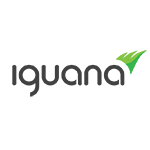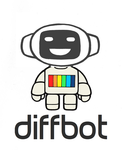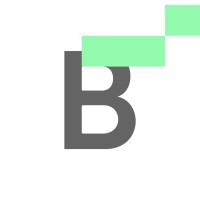Description

RPA Express

Iguana
Comprehensive Overview: RPA Express vs Iguana
As of my last update, I do not have specific information on a product called RPA Express, Iguana. It seems there might be a mix-up between different technologies or they could be products with little widespread information available publicly. However, I can provide a general overview of what RPA (Robotic Process Automation) tools like RPA Express and integration tools like Iguana generally offer, including market targeting and differentiation. If more specific updates have occurred after my last training data in October 2023, I recommend consulting the latest company press releases or industry reports.
General Overview of RPA Express:
a) Primary Functions and Target Markets
- Primary Functions: RPA Express typically would automate repetitive tasks traditionally performed by human users interacting with digital systems. It usually includes features such as process recording, workflow design, and bot management.
- Target Markets: Medium to large enterprises seeking efficiency through automation of routine tasks in industries like finance, healthcare, manufacturing, and logistics.
b) Market Share and User Base
- RPA Express tools are generally positioned as entry-level or mid-tier solutions for businesses looking to implement RPA at a manageable scale while still accessing robust automation capabilities. These tools might not have the market dominance of heavyweight RPA players but serve a niche for businesses starting their automation journeys.
c) Key Differentiating Factors
- Ease of Use: Typically focused on offering a low-code or no-code interface to cater to business users without deep programming skills.
- Cost: Positioned as a cost-effective solution, possibly even offering a free version with basic features to attract users.
General Overview of Iguana:
a) Primary Functions and Target Markets
- Primary Functions: Iguana is often associated with healthcare interoperability, specifically focusing on integrating healthcare data across different systems.
- Target Markets: Healthcare providers, hospitals, and clinics requiring data integration solutions to connect different healthcare software, such as Electronic Health Records (EHR) or Health Information Systems (HIS).
b) Market Share and User Base
- Iguana’s market presence is more niche, tailored to the healthcare industry, specifically focusing on seamless data integration and complying with healthcare information standards like HL7, FHIR, etc.
c) Key Differentiating Factors
- Healthcare-Focused: Unique emphasis on healthcare data integration, compliance with health data standards, and enabling interoperability among various healthcare IT systems.
- Customization and Scalability: Provides robust tools for custom data integration pathways to fit different organizational needs.
Key Differentiating Factors Between RPA Tools and Integration Solutions Like Iguana
-
Functional Focus:
- RPA Tools: Automate routine, rule-based tasks across various industries.
- Integration Solutions: Focus on connecting different systems, typically domain-specific (e.g., healthcare).
-
Industry Application:
- RPA Express-type tools: Diverse applications across industries.
- Iguana: Primarily healthcare.
-
Market Orientation:
- RPA tools: Emphasize ease of use for business process automation across sectors.
- Integration tools like Iguana: Specialize in compliance and data integration within a specific industry, requiring specialist knowledge of standards and interoperability issues.
To acquire the most accurate and current information, especially regarding market share and recent product developments, you might want to consult the latest industry reports, company announcements, and user reviews.
Contact Info

Year founded :
Not Available
Not Available
Not Available
Not Available
Not Available

Year founded :
1985
Not Available
Not Available
Belgium
Not Available
Feature Similarity Breakdown: RPA Express, Iguana
RPA Express (now known as Bot Express or part of the Automation 360 suite by Automation Anywhere) and Iguana, which is an integration engine primarily used in healthcare settings, offer distinct functionalities, though there might be some overlap in features related to automation and integration. Here's a breakdown of their feature similarities and differences:
a) Core Features in Common
-
Automation Capabilities:
- Both platforms facilitate automation: RPA Express is designed to automate repetitive tasks across various applications, while Iguana focuses on automating the integration of healthcare data.
-
Workflow Management:
- They both support workflow orchestration, allowing users to design and manage complex workflows.
-
Integration Support:
- Iguana specializes in seamless data integration across healthcare systems, while RPA Express can be used to integrate processes across different applications by mimicking human actions.
-
Scalability:
- Both systems are scalable to accommodate the needs of growing organizations, though they may target different operational scales and domains.
b) User Interface Comparison
-
RPA Express (Bot Express):
- Typically offers a drag-and-drop interface focused on ease of use for automating tasks without intricate coding. It is designed to be user-friendly, allowing users with little technical expertise to automate processes efficiently.
- The interface usually includes a dashboard for managing bots and visualizing workflow execution.
-
Iguana:
- Iguana's interface is more technical due to its focus on data integration, especially within healthcare. It supports sophisticated scripting for data transformations and message routing.
- The interface includes tools for real-time monitoring, debugging, and managing data flows, which may require more technical understanding.
c) Unique Features
-
Unique Features of RPA Express:
- Bot Store: Access to a marketplace of pre-built bots and automation tools that can be readily deployed to extend functionality.
- AI and ML Integration: Designed to integrate with AI services to enhance decision-making processes in automation.
- Enterprise-Grade Security: Provides features tailored for secure automation in enterprise environments.
-
Unique Features of Iguana:
- HL7 and FHIR Support: Specializes in healthcare data standards like HL7 and FHIR, essential for healthcare integrations.
- Data Transformation Capabilities: Offers advanced data transformation options critical for complex healthcare data manipulation.
- Real-Time Data Processing: Capable of handling real-time data exchange, crucial for healthcare operations.
Conclusion
While both RPA Express and Iguana offer automation and integration capabilities, they are optimized for different domains—general business process automation versus healthcare-specific data integration. The choice between them would largely depend on the specific needs of an organization, particularly whether they require robust data integration features tailored for healthcare or a versatile RPA solution for various business processes.
Features

Seamless Integration
User-Friendly Interface
Security and Compliance
Support and Updates

Not Available
Best Fit Use Cases: RPA Express, Iguana
RPA Express and Iguana are tools designed to automate processes and enhance efficiency within organizations, but they cater to different needs and scenarios. Here’s how they can best be utilized:
RPA Express
a) Best Fit Use Cases for Businesses or Projects:
- Small to Medium Enterprises (SMEs): RPA Express is ideal for SMEs looking to automate repetitive tasks without a significant investment in complex technology or infrastructure. It offers an accessible entry point for automation, allowing businesses to realize value quickly.
- Back Office Operations: It is particularly suited for automating routine back-office tasks such as data entry, report generation, and basic data integration between systems.
- Cost-Sensitive Environments: Businesses that require cost-effective solutions for automating processes.
- Rule-Based Processes: Best suited for processes that are structured and rule-based, with minimal need for subjective decision-making.
- Rapid Deployment Projects: Projects that require quick deployment and need rapid return on investment will benefit from the readiness and ease of use offered by RPA Express.
Iguana
b) Preferred Scenarios:
- Healthcare and HL7 Integrations: Iguana is especially powerful in the healthcare sector, excelling at integrating different healthcare information systems using HL7 standards.
- Complex Data Transformations: Scenarios requiring robust data transformation and processing capabilities, including integration with various data formats and standards.
- Real-Time Data Exchange: Ideal for businesses that need real-time data exchange and processing, especially in environments where data accuracy and timeliness are critical, such as hospitals or labs.
- Customization Requirements: Projects needing extensive customization and flexibility beyond simple automation tasks.
- Industry-Specific Integrations: Scenarios where specific industry standards need to be adhered to, particularly in healthcare.
d) Cater to Different Industry Verticals or Company Sizes:
- Industry Verticals:
- Healthcare: Iguana shines with its specific focus on HL7 and the healthcare industry's unique integration needs, providing seamless data flow between clinical and administrative systems.
- Finance and Insurance: RPA Express can be effectively used to automate routine transactions, compliance checks, and document processing tasks within these industries.
- Retail and Supply Chain: For these sectors, RPA Express can automate inventory management, order processing, and streamline customer-facing operations.
- Company Sizes:
- Small and Medium Enterprises (SMEs): RPA Express is particularly beneficial for SMEs due to its ease of setup and lower cost barrier, helping smaller companies to leverage automation without overextending resources.
- Large Enterprises: Iguana is more apt for large organizations with complex integration needs, especially those in the healthcare industry where data integration is crucial.
In summary, RPA Express is best for general automation across various industries where processes are straightforward and rule-based, and Iguana is preferred for more complex integration tasks, particularly in healthcare, where adherence to data standards is critical.
Pricing

Pricing Not Available

Pricing Not Available
Metrics History
Metrics History
Comparing undefined across companies
Conclusion & Final Verdict: RPA Express vs Iguana
To provide a comprehensive conclusion and final verdict for RPA Express and Iguana, we need to consider various factors such as functionality, cost, ease of use, scalability, support, and specific use cases.
Conclusion and Final Verdict:
a) Best Overall Value:
Considering all factors, RPA Express generally offers the best overall value for organizations looking for robust automation capabilities without a significant financial investment. It provides a cost-effective solution with a range of features suitable for small to medium-sized businesses beginning their automation journey.
b) Pros and Cons:
RPA Express:
-
Pros:
- Cost-Effective: Offers a free version, making it accessible to businesses with limited budgets.
- User-Friendly: Simplified interface with guided setup, suitable for non-technical users.
- Community Support: Large user community provides ample resources and shared solutions.
- Integration Capabilities: Easily integrates with various applications and systems.
-
Cons:
- Limited Features in Free Version: Advanced features may require upgrading to a paid plan.
- Scalability Issues: May not be suitable for large-scale enterprise needs.
- Performance Limitations: Handling high-volume tasks may result in slower performance.
Iguana:
- Pros:
- Specialized Use Case: Excellent for integration in healthcare environments, particularly HL7 messaging.
- Robust Integration: Strong capabilities for handling complex data exchanges.
- Customization: Offers high levels of customization for specific needs and workflows.
- Cons:
- Niche Market: Primarily beneficial for healthcare and related industries, limiting its broader applicability.
- Higher Cost: Can be expensive, particularly for smaller organizations or those outside of healthcare.
- Steeper Learning Curve: Requires domain-specific knowledge for effective use, which can be challenging for new users.
c) Recommendations:
-
For Users Looking for General Automation Solutions: If your organization is new to automation and requires a cost-effective, user-friendly tool to automate repetitive tasks across various applications, RPA Express is recommended due to its affordability and ease of use.
-
For Users in the Healthcare Sector: Iguana is a strong choice if your organization operates within the healthcare industry or needs to manage complex HL7 integrations. Its specialized capabilities in healthcare data exchange justify the investment.
-
Scalability Considerations: If an organization plans rapid expansion of its automation efforts, it should evaluate whether RPA Express can meet its needs or consider transitioning to a more scalable enterprise-grade RPA solution. Iguana's strengths in integration should be a factor if your focus remains in its niche.
In summary, both RPA Express and Iguana have their strengths and specific domains where they excel. RPA Express is a more generalist solution suitable for broader use, while Iguana shines within the healthcare integration landscape. Users should consider their industry, budget, and specific requirements before deciding which product aligns best with their organizational goals.
Add to compare
Add similar companies




